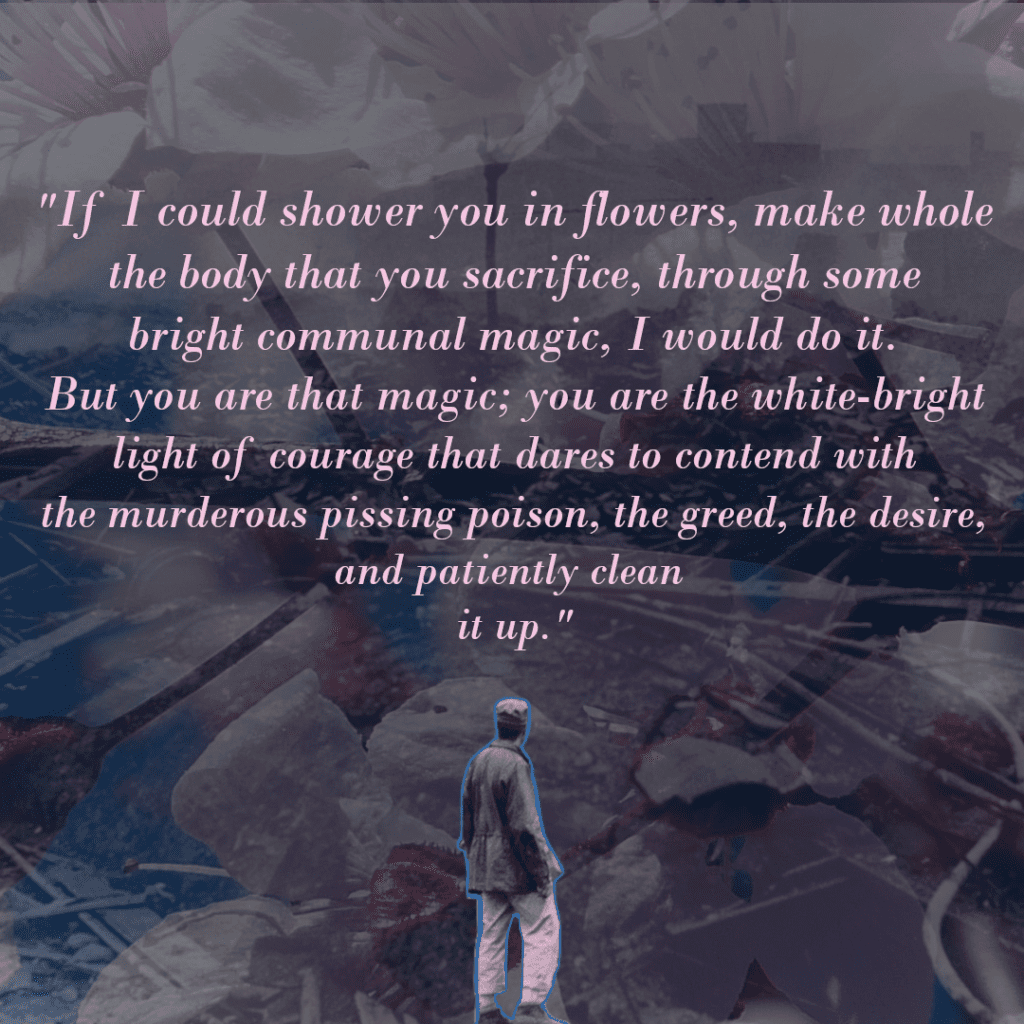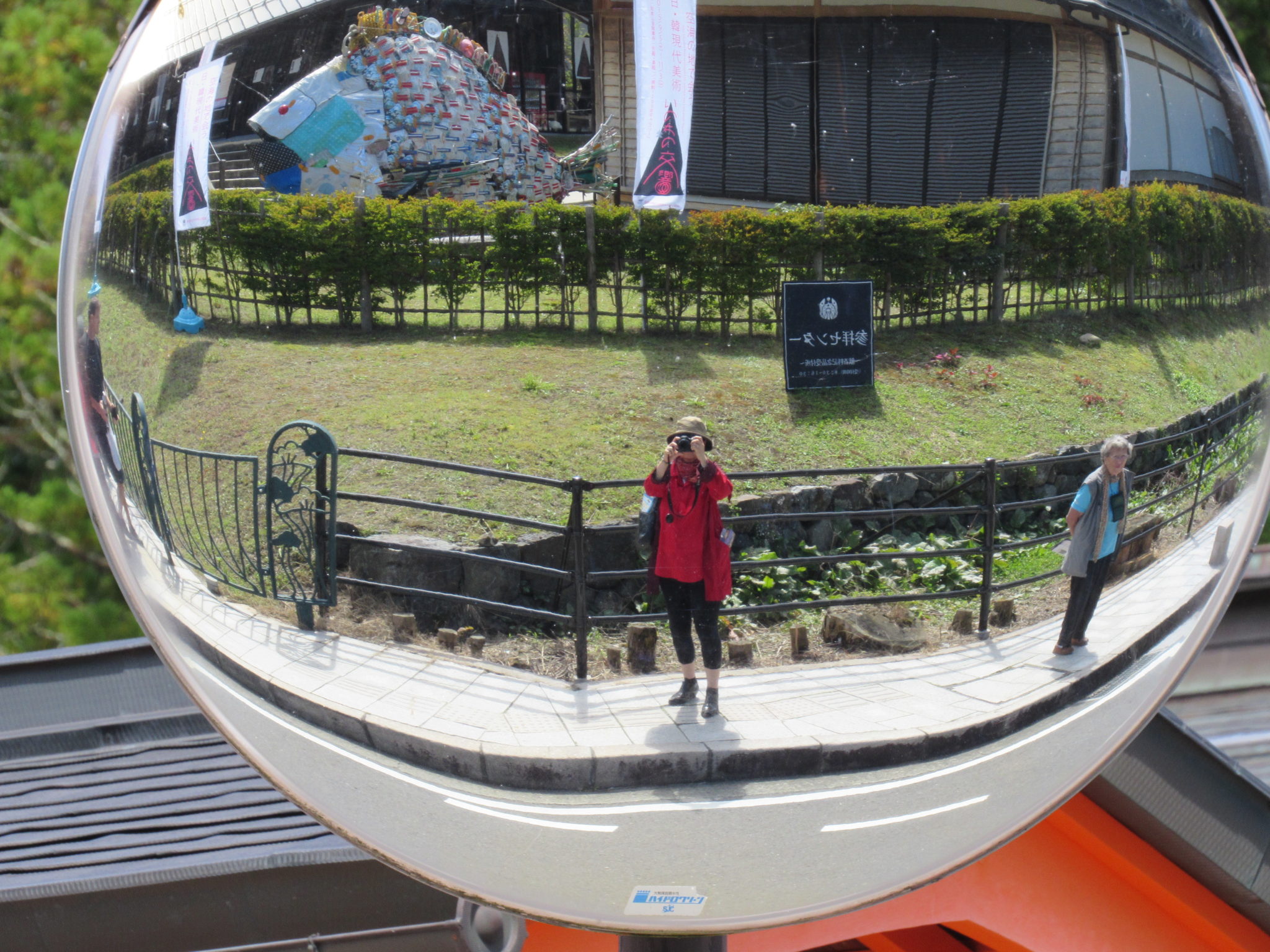Linda Watanabe McFerrin Shares two Poems from her Upcoming Book
"Containment" and "One Thousand Cranes" both "speak to the suffering, sacrifice, courage and price that is paid when horror trumps humanity."

Earlier this month, August, I served again as a member of the Faculty at the 28th Annual Book Passage Travel Writers & Photographers Conference in Corte Madera California. This is a truly special conference for me as this is the forum that launched me into a career in travel writing back in 1991 when I won its first travel writing award.
This year, 2019, the conference again made a major impact on me. Special guests, Jason Rezaian, who once attended both the conference and my travel-writing workshop at the Writers Center of Marin, and his wife, Yeganeh Rezaian, were guest speakers. I had the pleasure of introducing them in a talk with one of my mentors, Don George.
Jason, a recipient of the McGill Medal for Journalistic Courage from the Grady College of Journalism and Mass Communication was the Washington Post’s Tehran correspondent in 2012. Jason is the author of Prisoner: My 544 Days in an Iranian Prison, a profoundly moving memoir about his unwarranted incarceration in Iran. His beautiful wife, Yeganeh, also a journalist, and imprisoned for 72 days, is now a U.S. citizen and an advocate for the Committee to Protect Journalists (CPJ), a non-profit non-governmental organization that promotes freedom of the press and the rights of journalists worldwide.
It was a moving reunion, and on its heels I want to share two poems from Navigating the Divide that speak to the suffering, sacrifice, courage and price that is paid when horror trumps humanity.
Containment
(for the Fukushima Fifty)
Man in white—HazMat/level A—
ghostlike, moving, breathing slowly—
in my horrified dream I hear your ragged
inhalation-exhalation through the
self contained breathing apparatus (SCBA)
they say will keep you safe
from radiation: particles and gas.
These could choke you, stop your already
laborious progress through a plant men made
to fuel a lust for power.
You are anonymous, face encapsulated
by the hood, voice rattled
by the supplied air respirator, pushed
into the voice-operated channel—your
umbilicus to clean-up operations.
You are my zombie hero, dead man walking,
while the Big Brains meet and find new ways
to slice and dice the acceptable margin
for terror.
If I could shower you in flowers, make whole
the body that you sacrifice, through some
bright communal magic, I would do it.
But you are that magic; you are the white-bright
light of courage that dares to contend with
the murderous pissing poison, the greed, the desire,
and patiently clean
it up.
—Erin Orison, Dead Love
One Thousand Cranes
(for Sadako Sasaki 1943-1955)
One thousand cranes bring health.
She folds them silently
although already she
is slipping from the radiation illness,
falling from
the pinnacle of her childhood,
ten years after
the bombing of Hiroshima,
back toward that land of shadows and singed souls
from which she thought
she'd climbed.
Gold, pink, persimmon --
the purple ones
are prettiest.
How many had she folded?
Not one thousand, surely,
not one thousand or
she never would have died.
The little hands
like butterflies,
schoolchildren
disbelieving in
sad endings
helped her (too late)
constructing
the Tower of One Thousand Cranes,
thinking, in that way,
to bring back the dead.
Japanese-American Poet, travel writer and novelist Linda Watanabe McFerrin, has been traveling since she was two and writing about it since she was six. A contributor to numerous journals, newspapers, magazines, anthologies and online publications, she is the author of two poetry collections, an award-winning novel (Namako: Sea Cucumber) and short story collection (The Hand of Buddha), and the editor of a travel guidebook (Best Places Northern California) and four literary anthologies. A past winner of the Katherine Anne Porter Prize for Fiction, she teaches and leads workshops in fiction and creative non-fiction and she is not afraid of the dark.
